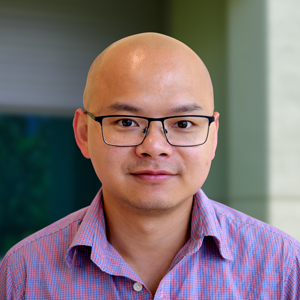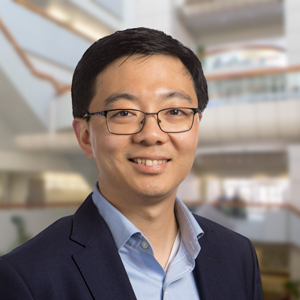
3 Scripps Research scientists win New Innovator Award for ‘high-risk, high-reward’ projects
The NIH program funds highly innovative and impactful biomedical or behavioral research proposed by extraordinarily creative scientists.
October 06, 2020
LA JOLLA, CA, and JUPITER, FL—Three Scripps Research scientists are among 53 early-career researchers nationwide to receive a New Innovator Award through the National Institutes of Health. The award is part of the NIH’s “High-Risk, High-Reward” program, which seeks to catalyze scientific discovery by supporting research with transformative potential.
The Scripps Research recipients are Huan Bao, PhD, assistant professor in the Department of Molecular Medicine; Lisa Racki, PhD, assistant professor in the Department of Integrative Structural and Computational Biology; and Li Ye, PhD, assistant professor in the Department of Neuroscience.
Established in 2007, the NIH Director's New Innovator Award provides funding to unusually innovative research from investigators who are within 10 years of their final degree or clinical residency. NIH Director Francis Collins, MD, PhD, called this year's winner cohort "impressive and inspiring."
“I am confident that their work will propel biomedical and behavioral research and lead to improvements in human health,” Collins says.

Huan Bao, PhD
Huan Bao: Looking deeper into membrane proteins
The Bao Lab, based on the Jupiter campus, is developing nanoparticles to enable new discoveries about membrane proteins. These cell-surface molecules are critical for cell-to-cell communication, Bao says. They are also important drug targets for the treatment of many human diseases, making them a compelling research focus.
“These proteins are very hard to isolate and study,” Bao says. “If we can develop nanoparticles that would isolate them in lipid environments without the use of detergents, we can expand our ability to do structural and functional studies.”
Bao earned his PhD at the University of British Columbia in Vancouver, in its Department of Biochemistry and Molecular Biology. He went on to pursue post-doctoral research with Edwin Chapman, PhD, at the University of Wisconsin, Madison, and Howard Hughes Medical Institute before joining Scripps Research in 2019.

Lisa Racki, PhD
Lisa Racki: How bacteria survive when starved
Racki’s lab at Scripps Research in La Jolla focuses on understanding how bacteria remodel their subcellular architecture to cope with starvation. This process is key to bacterial survival in most environments, including the human body. Racki’s work can inform the development of new or more effective antibiotics for chronic infections.
“Most conventional antibiotics target activities that are important for bacteria when they are rapidly dividing, like DNA synthesis and cell wall biosynthesis, but less important to very slowly-growing and non-proliferating cells such as those found in chronic infections,” Racki says. “The New Innovator Award is a gamechanger for my lab and will allow us to develop a new approach to studying how bacteria reorganize their chromosomes as they batten down the hatches to prepare for periods of scarcity. If we can understand the coping strategies of starved bacteria, we can begin to understand how to defeat them.”
Racki earned her bachelor’s degree in biochemical sciences at Harvard University and her PhD in biochemistry at University of California, San Francisco. She completed post-doctoral research at the California Institute of Technology.

Li Ye, PhD
Li Ye: Neural network that controls metabolism
Ye, also based in La Jolla, studies the relationship between metabolism and neurons. By exploring circuits in the peripheral and central nervous system that have adapted to certain environmental stressors, Ye and his laboratory team aim to find new strategies for treating metabolic disorders such as obesity and type 2 diabetes, as well as certain neurodegenerative diseases.
“Very little is known on how the brain and peripheral nervous system work together to coordinate the metabolism in our body because there aren’t many techniques available to tackle this problem,” Ye says. “Only the highly interdisciplinary and collaborative environment at Scripps Research made this bold proposal possible.”
Ye earned his doctoral degree in Biological Sciences in Public Health from Harvard University. He performed postdoctoral studies at Stanford University and Howard Hughes Medical Institute before joining Scripps Research in early 2018.
Freedom to explore
The NIH Director's New Innovator Award is designed to provide tremendous freedom for new academic faculty to explore and gather data early on in their career. Combined with the other High-Risk, High-Reward grants, the NIH will distribute approximately $251 million over five years. All recipients were encouraged to think “outside the box” and pursue trailblazing ideas in any area of research relevant to the NIH’s mission to advance knowledge and enhance health.
The High-Risk, High-Reward program is part of the NIH Common Fund, which oversees programs that pursue major opportunities and gaps throughout the research enterprise that are of great importance to NIH and require collaboration across the agency to succeed.
For more information, contact press@scripps.edu

